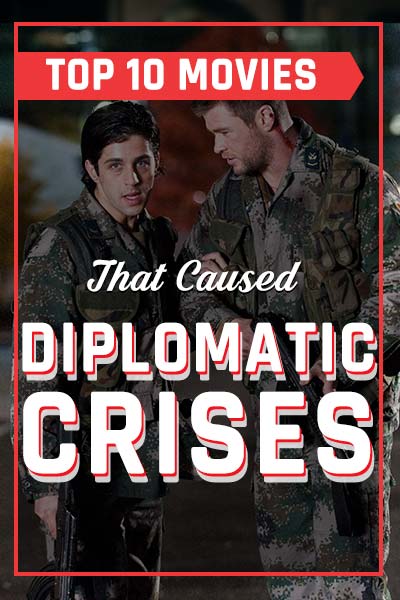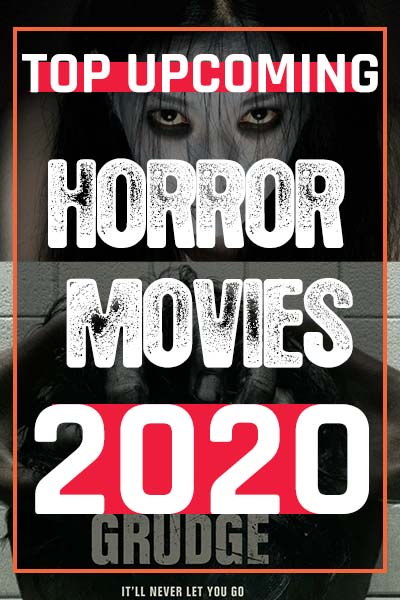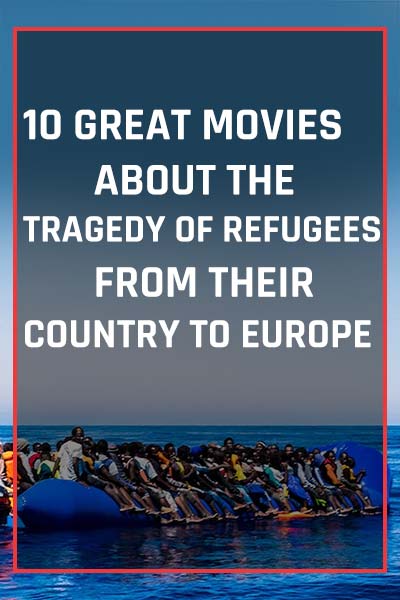People differ in their vision and acceptance of artistic and cinematic works in particular, given that the cinematography is one of the most prominent artistic ways an expression of the content to be sent to the recipient; therefore the cinematic film has always been the closest choice to criticize the current conditions in the world.
1- Cry Freedom 1987 .. When imagination changes reality
The film deals with the story of a white South African journalist who is being pursued by the authorities while he is investigating the murder of his friend, black political activist. The British film had a good resonance in international circles, and despite its approval by the censors in South Africa, at the time of its release, it caused a wave of anger in South Africa for portraying officials as politically corrupt brutes, which prompted the then South African Information Minister to state that the film is “blatant propaganda” against the state and reduces South Africa’s image to the world, and the production company and Britain ignored the accusation.
Angry crowds went out in demonstrations following the apparent racism in the film and shouted in the name of the South African leader, “Mandela”, who was then imprisoned, which raised the feeling of citizens against the British rule and the prevailing discrimination at the time, especially since the film showed a fake figure of an Australian diplomat helping the journalist during the events of the film, which showed the British in a photo Embarrassing, and when Britain became silent, the demonstrations rose quickly and accused the British press that the film represented pressure that blackmailed the British government and that the South African government should amend its policy, not Britain, it is worth noting that this crisis or not Thamel Al-Mutadal directly contributed to the start of negotiations to end apartheid in South Africa that started in 1990.
2- Argo 2012 .. Iranian anger
The famous movie in political circles dealt with the story of the American hostage crisis during the outbreak of the revolution in Iran in 1979, which included some of the American embassy officials who were smuggled by the American intelligence service, the film raised the discontent of the Canadian press to reduce the role of the Canadian authorities in saving the American embassy employees in cooperation with American Intelligence Service.
In Iran, “Abu al-Hasan Bani Sadr”, the Iranian President at the time of the crisis, stated that the film did not show the fact that he and members of his government were supporting the release of the hostages, and on the contemporary side, President Ahmadinejad – who was President of Iran at the time of the release of the film – condemned the way of dealing with the events of the film The Iranian Ministry of Information condemned him and described it as a propaganda for American intelligence and that it falsified facts and history and was not shown in Iran, but the film was circulated among the Iranians secretly as a silent protest against the way the Iranian authority deals with the West.
3- The Deer Hunter 1978… A hot reaction at the heart of the Cold War
The film dealt with a drama from the atmosphere of the United States war on “Vietnam”, and despite the success of the film locally and in most western countries, the former Soviet Union, the archenemy of America, took advantage of the war in which America was involved with unconvincing motives for the world, and the film was condemned by Russian officials who stated that the film He traded the suffering and struggle of the brave Vietnamese people who won the world’s support in his war with America, and the Soviet Union organized campaigns condemning the film through its allies such as Cuba, East Germany, and the former Czechoslovakia until it came to organizing boycotts of the film and even the withdrawal of delegates from other countries.
Communism of all special offers for international film festivals, and as the period was the height of the cold war Those situations resulted in only a few countries boycott the film completely ignored by the United States.
4- The Great Dictator 1940 .. Nazi anger
Many in the world of cinema considered him one of the bravest films, and the most daring one at a time when the world feared the ridicule of tyrants, the movie starred by British comic legend “Charlie Chaplin” and produced by American Hollywood, which had not even entered the largest global conflict yet, and ridiculed it of The Nazi leader «Adolf Hitler» imitating him with the same appearance, the violent tone, and even his short funny mustache after his party issued a propaganda book entitled “The Jews Watching You” in which “Chaplin” is considered “a Jew with sympathy” and Hitler felt insulted by this cynical diagnosis and accused the American cinema of conspiring against him Favor The forces of the “allies” and the Jews, but the funniest thing is that “Chaplin” did not comment but rather sent a copy of the movie to “Hitler” personally, and the United States did not comment on the Nazi leader’s attack, but this matter undoubtedly exacerbated the tension between the two countries that reached Its climax was when America entered World War II in 1941, that is, less than two years after the film was released.
5- The Interview 2014 .. Threats and leaks!
The movie, which most Internet users heard in 2014, tells the story of American broadcasters who go to North Korea on a mission to conduct a press interview with North Korean leader Kim Jong-un and are recruited by the American intelligence service to assassinate him.
Before its release, the North Korean government sent a direct message to the United States to prevent the distribution and screening of the movie that mocks its leader, otherwise it would be a sponsor and mainly responsible for supporting terrorism. The US failure to respond resulted in an electronic piracy and leakage of documents on the company’s production policies, Sony. North Korea denied any relationship with it, and the company did indeed respond to the threat and withdrew the film from the cinemas and put it online, and then US President Barack Obama commented that this was a “hostile act” by North Korea, and it did not end with the losses that the company suffered, but rather caused The escalation of tension between the two countries.
6- (2006) 300 Counterfeiting Heritage
The famous epic movie about the war of the Persians and Greece and a squad of spartan fighters, originally based on a novel depicted in the same name that sparked widespread anger in Iran, to the extent described in Iranian newspaper headlines as “a new front war opened by Hollywood against Iran.”
The film showed the personality of the Persian king “Xerxes” in a barbaric, ironic and ironic barbaric form closer to the monsters, according to statements by Iranian officials and then Prime Minister Mahmoud Ahmadinejad described it as a cultural and psychological war on Iran. When the US administration ignored this claim, Iran later decided in 2013 to prosecute a few Abusive films, including 300, but so far there have been no updates on the alleged prosecution.
7- Borat 2006
The American-British movie was starred by the controversial British actor, “Sasha Baron Cohen”. Its events are documenting a visit of a citizen of the state of “Kazakhstan” to America, imitating in a comic style the documentary style, but what angered “Kazakhstan” is the depiction of the Kazakh citizen in a brutal, racist, ignorant and hostile manner.
To the Semitic, and its foreign minister threatened at that time to sue the British representative, next to spending a lot of money on a propaganda campaign to improve the country’s image before the world and called it “Kazakhstan: the heart of Eurasia”, and after things calmed down and dropped the lawsuit, a foreign minister later admitted Kazakhstan in 2012 that the film after all contributed to the promotion of tourism to his country and that some parts of the film found «funny».
8- Zoolander 2001 Malaysia .. Smart Interception!
Nobody in Hollywood expected that the weirdo comedy would provoke a crisis in a peaceful country like “Malaysia”. The film deals in the context of a fantasy assassination plan for the Prime Minister of Malaysia by a model who was brainwashed.
However, the Malaysian censorship considered that the movie was “inappropriate” and formally objected to it, and banned its showing in “Malaysia”, and its neighbor, “Singapore”, but as usual, the United States, which refuses to deviate from its rules in the principle of “freedom of expression”, did not comment on that objection, but the Asian country I found a smart solution when launching the film in the rest of Asia by formally requesting the display countries to replace the name “Malaysia” in the film’s events with the name “Micronesia”, which is the name of a small island overlooking the ocean, which is usually confused with “Malaysia”!
9- Red Dawn 2012 .. Asian stereotyping and material interests
It was originally a remake of the action-and-adventure movie of the same name and was produced in 1984 telling the story of a group of young Americans defending their town against a Russian attack in a fictional scenario of World War III.
In the events of the modern version, China was replaced by Russia, but the news of the new version raised the ire of the Chinese, prompting the President of the Chinese Newscorp to declare that the film “incites feelings of fear from the Chinese and peaceful Asian societies.” And while no official American comment was issued, a clear retraction of The side of the production company «Metro Golden Mayer» that modified the film digitally and replaced all the Chinese flags in the events of the movie “North Korea” in a situation that some American media described as negligent or driven by fear of losing the Chinese market “profitable” to many Hollywood companies because it did not N There is a complaint or an official from the Chinese objection basis.
10- Death of a President 2006
A British documentary film directed by “Gabriel Rang”, which deals with a fictional idea that summarizes the case of the assassination of US President “George Bush”, the son while he was in power, the investigations that followed the assassination and its hypothetical reasons.
That time, America was a victim of “freedom of expression”, but it was not limited to denunciation and silence. Voices inside the corridors of the White House called for “Gabriel Rang” prison, and “Hillary Clinton” commented on him: “Despicable, despicable, and disgrace for those who profit from behind.” This fictional scenario is grotesque and nauseating. ”Despite these negative and aggressive opinions, there was no ban or even official objection to the film.




